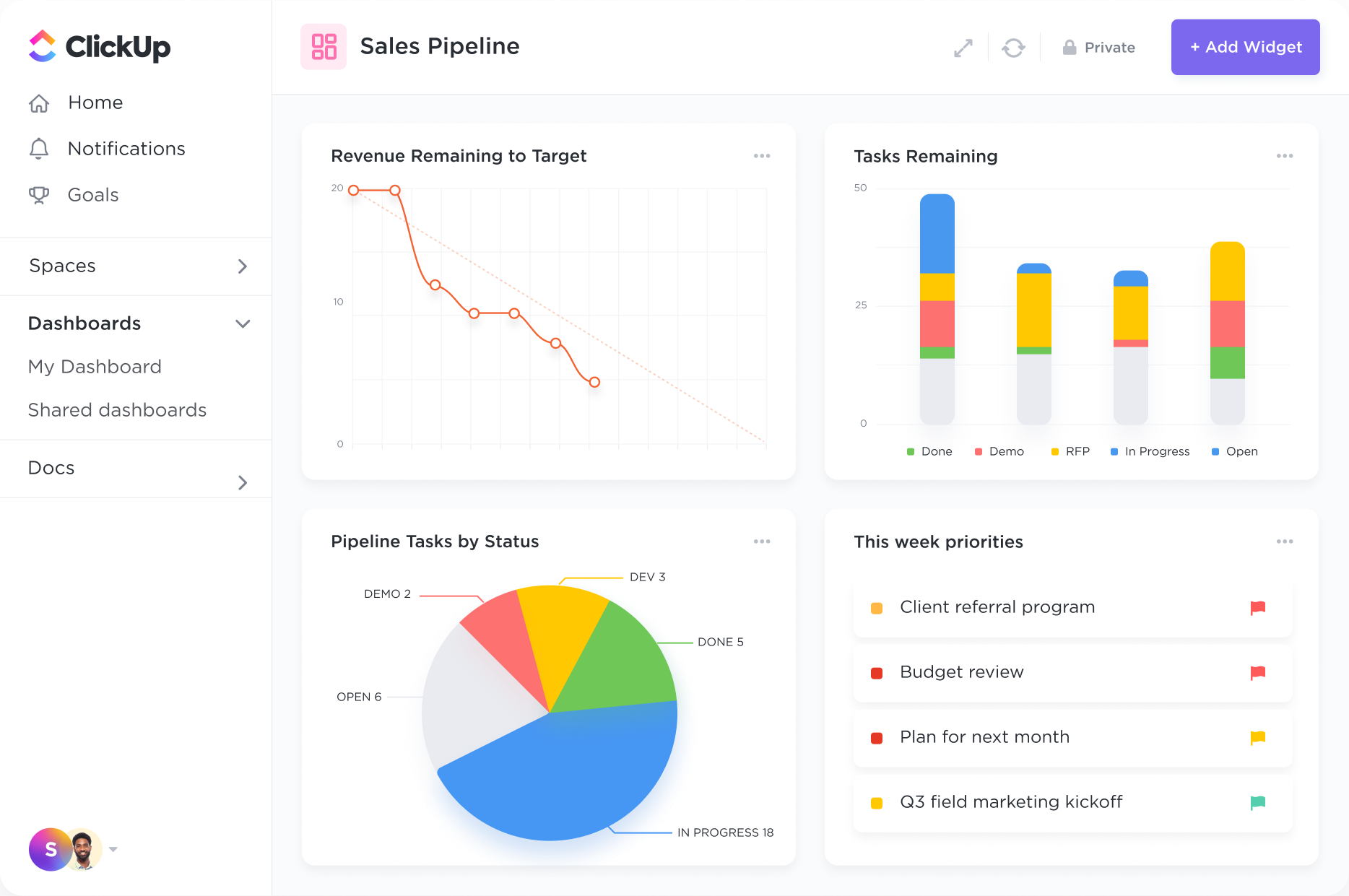Centralize customer outreach.
Eliminate silos and fast-track communication by integrating your emails with ClickUp. Collaborate on deals, send project updates to clients, and onboard customers with a single email hub.

Transform your service business with ClickUp's customizable CRM system. Streamline client communication, track leads, and manage projects all in one place. Boost efficiency and customer satisfaction with ClickUp's powerful features designed specifically for service businesses. Try ClickUp today and take your customer relationships to the next level.
Free forever.
No credit card.
Trusted by the world’s leading businesses
Eliminate silos and fast-track communication by integrating your emails with ClickUp. Collaborate on deals, send project updates to clients, and onboard customers with a single email hub.

Create high-level views to monitor customer lifetime value, average deal sizes, and more. ClickUp's 50+ Dashboard widgets make it easy to visualize all of your customer data in one place.

CRMs assist service businesses in capturing leads from various sources, evaluating them based on specific criteria, and guiding them through the sales funnel. By tracking lead interactions and behaviors, businesses can prioritize efforts on leads most likely to convert, ultimately increasing sales efficiency.
Utilizing a CRM's ticketing system, service businesses can efficiently manage customer inquiries and issues by assigning tickets, tracking their progress, and ensuring timely resolutions. Additionally, providing customers with self-service options like FAQ sections or knowledge bases within the CRM enhances customer satisfaction and reduces support costs.
CRMs enable service businesses to analyze customer behavior, preferences, and interactions, offering valuable insights for personalized service delivery. By utilizing performance dashboards and segmentation analysis tools, businesses can make data-driven decisions, optimize service offerings, and identify opportunities for growth.
Through a centralized database within the CRM, service businesses can maintain up-to-date information on customers and prospects, ensuring seamless communication and personalized interactions. By tracking every customer interaction and mapping relationships between contacts, businesses can enhance customer relationships and implement targeted marketing strategies effectively.
CRMs streamline service business operations by automating routine tasks, ensuring consistency across sales, marketing, and customer service processes. Automated alerts and notifications help teams stay on top of important tasks, while streamlined approval processes enhance efficiency and accountability within the organization.
Key features of CRM software for service businesses include customer data organization, communication tracking, task automation, customer interaction history, and service ticket management.
CRM software can help service businesses streamline appointment scheduling and management processes by providing a centralized platform for managing bookings, availability, and customer information. This can include automated appointment reminders, easy rescheduling options, and real-time calendar updates for improved efficiency and customer satisfaction.
Best practices for effectively using CRM software in a service business include centralizing customer data, automating tasks like follow-ups and reminders, customizing communication for personalized interactions, and analyzing data for insights to improve service delivery and client relationships.